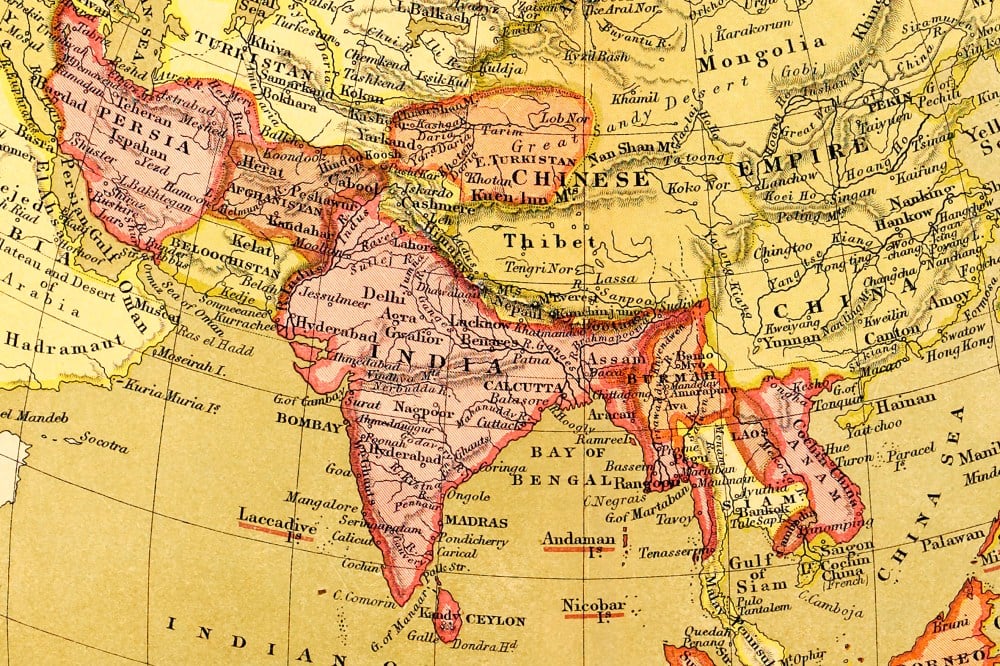Talks with Chinese ambassador indicate link between politics and Chinese visitors numbers to Thailand
By Joseph O’ Connor
Copyright thaiexaminer

Politics and anti-Chinese sentiment may have played a role in collapsing Chinese tourist flows to Thailand in 2025 as Golden Week arrivals plunge 24%, while security concerns, lack of attractions and regional competition at the same time force authorities to scramble to revive revenue, confidence and foreign tourism numbers.
On Monday, Deputy Prime Minister Thamanat Prompow suggested that Chinese tourist flows may have contracted this year as a result of a perceived anti-Chinese bias by the Thai government and ministers, as perceived in China. He said the Chinese market may have targeted Thailand after the government and ministers showed disrespect, confirming what the travel industry has long feared. The remarks followed talks with the newly installed Chinese ambassador, Zhang Jianwei. It comes as authorities scramble to revive the kingdom’s collapsing foreign tourism numbers. Ambassador Zhang also flagged Thailand’s security issues and the lack of new international attractions as key drivers of the decline. On the same day, Tourism Authority of Thailand Governor Thapanee Kiatphaibool confirmed the slump has persisted into this year’s Golden Week, with Chinese arrivals plunging 24%.
On Monday, the Tourism Authority of Thailand (TAT) Governor Thapanee Kiatphaibool confirmed that the decline in Chinese tourists remains severe. During Golden Week, from September 26 to October 8, arrivals are down by approximately 24%. Thailand expects 200,000 visitors, compared to 262,000 in the same period last year. Consequently, tourism revenue has dropped sharply, signalling a major setback for the sector.
Additionally, figures show a 25% fall from Northeast Asia this year. At the same time, arrivals from ASEAN countries have decreased by 8%. Therefore, Thailand is now facing a broad regional decline, rather than an isolated dip in Chinese tourist numbers. Industry insiders warn that these trends are more than temporary fluctuations.
Deputy Prime Minister warns political sentiment in China may certainly impact tourist flows to the kingdom
Deputy Prime Minister Thamanat Prompow’s remarks on Monday have further fueled concern. He appeared to confirm that political factors contributed to the drop in Chinese tourists. While arrivals were rising steadily in January 2025, the trend reversed dramatically in February this year.
This reversal followed reports of Chinese nationals being abducted by criminal gangs through Thailand into Myanmar. Consequently, safety perceptions became a key concern for travellers. Moreover, sources within the travel industry claim that China may also be using tourism as a diplomatic lever. Tourist flows, they say, are sometimes adjusted to signal disfavour to countries whose governments displease Beijing.
On Monday, Thamanat acknowledged these political dynamics in explaining this year’s decline, based on discussions with the new Chinese ambassador to Thailand, Zhang Jianwei. Ambassador Zhang reportedly emphasised that disrespect by the Thai government and some ministers had angered people in China. Analysts interpret this as a reference to the previous administration under Paetongtarn Shinawatra.
Thailand’s security issues and limited attractions are major factors behind the drop in Chinese tourist numbers
Additionally, he highlighted Thailand’s security environment and the lack of new tourist attractions. These combined factors have discouraged many Chinese visitors. Consequently, diplomatic and security issues appear to combine when it comes to Chinese inward tourism outcomes.
In response, Deputy Prime Minister Thamanat ordered Minister of Tourism and Sports Atthakorn Sirilathayakorn to accelerate recovery efforts. He stressed that Thailand must be fully prepared, with both infrastructure improvements and robust safety measures. Moreover, he directed authorities to address reputational challenges to regain the confidence of Chinese tourists.
Meanwhile, TAT Governor Thapanee Kiatphaibool outlined a series of initiatives to stimulate the market. Festival events, including Loy Krathong and New Year countdown celebrations, aim to enhance sentiment in the tourism sector. In addition, TAT seeks to diversify markets, targeting the Middle East, Europe, and the Americas. This approach aims to reduce dependence on China while building resilience.
Tourism confidence index falls sharply in the third quarter of 2025 amid economic and regional pressures
The tourism confidence index for the third quarter of 2025 paints a grim picture. It fell to 66 out of 100, down from 70 in the previous quarter and 68 in the same quarter of 2024.
The survey involved 740 tourism operators, 450 Thai travellers, and 310 foreign visitors. It revealed several structural challenges, including economic sluggishness, the Thai-Cambodian border dispute, and falling Chinese tourist numbers. Furthermore, the baht’s strengthening continues to deter price-sensitive markets.
Projections for foreign arrivals have been downgraded. The new forecast of 33.1 million represents a 6.7% decrease from 2024 and a 17%drop from the 2019 peak. Additionally, the confidence index for the fourth quarter is projected at 72, another decline year-on-year. Regional analysis reveals further issues. Tourism confidence dropped in five of Thailand’s seven regions: northern, eastern, central, northeastern, and Bangkok. The capital city experienced the steepest decline, falling from 83 to 68.
Thai travellers show cautious international travel plans amid uncertainty in global tourism markets.
Among Thai travellers, only 15% plan to travel abroad in the fourth quarter. Of these, 18% intend to visit China or Vietnam, while 15% plan trips to Japan. These numbers highlight how domestic travel preferences are influenced by international uncertainties. Furthermore, they suggest a slow but cautious recovery in outbound tourism.
Thailand faces simultaneous pressures from multiple fronts. The persistent strength of the baht has made the country more expensive for long-haul markets, particularly the United States. Consequently, U.S. arrivals fell by 6% to 36,800 in early September. Strong currency and domestic economic concerns have combined to affect high-spending tourists.
Chinese arrivals declined even more sharply. During the same period, numbers fell 33% to 205,200. Safety perceptions, competition from Japan and South Korea, and rising costs contributed significantly. For instance, Japan’s 15% yen depreciation made it a far cheaper alternative. Additionally, South Korea introduced visa-free travel for groups of three or more through approved agencies until June 2026. These policy moves are actively drawing Chinese travellers away.
European arrivals show growth as a stronger euro and pound make Thailand more affordable for tourists
European markets, however, tell a different story. The euro and pound strengthened against the baht, making Thailand more affordable for Europeans. Consequently, UK arrivals rose by 1%, Germany increased by 5%, and France by 3%. Meanwhile, Japanese visitor numbers fell by 6% in early September, despite only a 1% appreciation of the baht against the yen. Nonetheless, Japan’s full-year arrivals are projected to grow 15–18%.
Economic and geopolitical factors further weigh on tourism fundamentals. U.S. trade tariffs, border disputes with Cambodia, and lingering safety concerns are key deterrents. Despite this, China remains Thailand’s largest source market, with tourists spending an average of ฿6,600 per person per day during six to eight-night trips. Although arrivals have decreased, daily flight bookings are up 5% compared to 2024, suggesting a gradual rebound.
Golden Week remains critical. The holiday period, lasting 13 days and coinciding with the Mid-Autumn Festival, represents a major test for Thailand’s tourism resilience. This year, revenue fell 17% to ฿9.1 billion.
Increased flights and marketing campaigns aim to restore confidence among Chinese tourists
Despite fewer visitors, flights from primary cities such as Shanghai, Guangzhou, Chengdu, and Kunming increased, including 30 additional weekly services. Secondary cities such as Shenzhen, Hangzhou, Xi’an, Xiamen, and Chongqing also contributed to rising connectivity.
Thailand has launched targeted marketing campaigns to stimulate Chinese tourism. Initiatives include “Nihao Month” in Guangzhou and the UGC campaign “Thailand, Told by You,” which encourages content creation by Chinese influencers.
Furthermore, the “Amazing Mid-Autumn in Thailand” event in Bangkok features Thai-Chinese cultural performances and the “Chinese Passport Privilege” program, offering benefits at shops, department stores, and travel services. These campaigns run from September to December 2025 and aim to rebuild confidence and stimulate travel.
The appreciation of the baht, coupled with domestic and global economic challenges, continues to restrict tourism. Foreign arrivals contracted 7% in the first eight months of 2025. U.S. tourists, in particular, were affected by a 7% stronger baht, higher costs of imported goods, and domestic economic concerns. Similarly, the 33% decline in Chinese arrivals underscores how safety, pricing, and competition influence travel decisions.
Regional competitors gain market share as Thailand faces an urgent need to recover its foreign tourism engine
Japan, South Korea, and Vietnam have leveraged pricing and visa strategies to gain market share. Japan’s weakened yen reduced travel costs, while South Korea’s visa exemption policy encourages group travel. Vietnam’s peak season and Laos’ new China-Laos railway also attract tourists seeking alternatives. These competitive dynamics make Thailand’s recovery more urgent and complex.
Despite these challenges, authorities remain cautiously optimistic. Chinese New Year 2026 is viewed as a potential rebound period, provided Thailand maintains safety, convenience, and tourism diversity.
Government initiatives now focus on infrastructure, safety, festival programming, and international marketing. Analysts argue that these combined measures are essential to restoring confidence and attracting high-value travellers.
Thailand’s tourism industry remains vulnerable to perception and policy shifts. Diplomatic tensions, safety concerns, and infrastructure gaps can heavily influence arrivals. If authorities fail to address these issues, the sector risks further decline. Conversely, proactive interventions could accelerate recovery.
Thailand must act swiftly to counter competition and strengthen tourism for long-term recovery
Competition in Asia continues to intensify. Japan, South Korea, and Vietnam aggressively court Chinese tourists through pricing, visa policies, and targeted marketing. Thailand must respond decisively, enhancing safety, modernising attractions, and leveraging cultural events. Failure to act promptly risks losing further market share.
Looking forward, recovery depends on coordinated actions across government and industry. Marketing campaigns, festival programming, infrastructure improvements, and safety measures are crucial. Additionally, diversification of source markets can reduce overreliance on China and strengthen resilience.
Plan to revise Thai tourism numbers by promoting sports and pivoting towards Asia and the Middle East
Concern for US tariff deal as new Thai government shows enthusiasm for stronger links with Beijing
China warns Thailand not to ‘please’ the United States at its expense. US trade talks again postponed
PM on a mission to China to ask President Xi Jinping to help rein in heavy online criticism of the kingdom
In conclusion, Thailand faces a critical juncture in late 2025. The decline in Chinese tourists, a strong baht, regional competition, and safety and diplomatic concerns create a complex environment. Authorities are implementing multi-pronged strategies to restore confidence and stimulate arrivals. Golden Week and Chinese New Year 2026 will test the industry’s resilience, offering opportunities for recovery if challenges are addressed effectively.
Join the Thai News forum, follow Thai Examiner on Facebook here
Receive all our stories as they come out on Telegram here
Follow Thai Examiner here
Further reading



